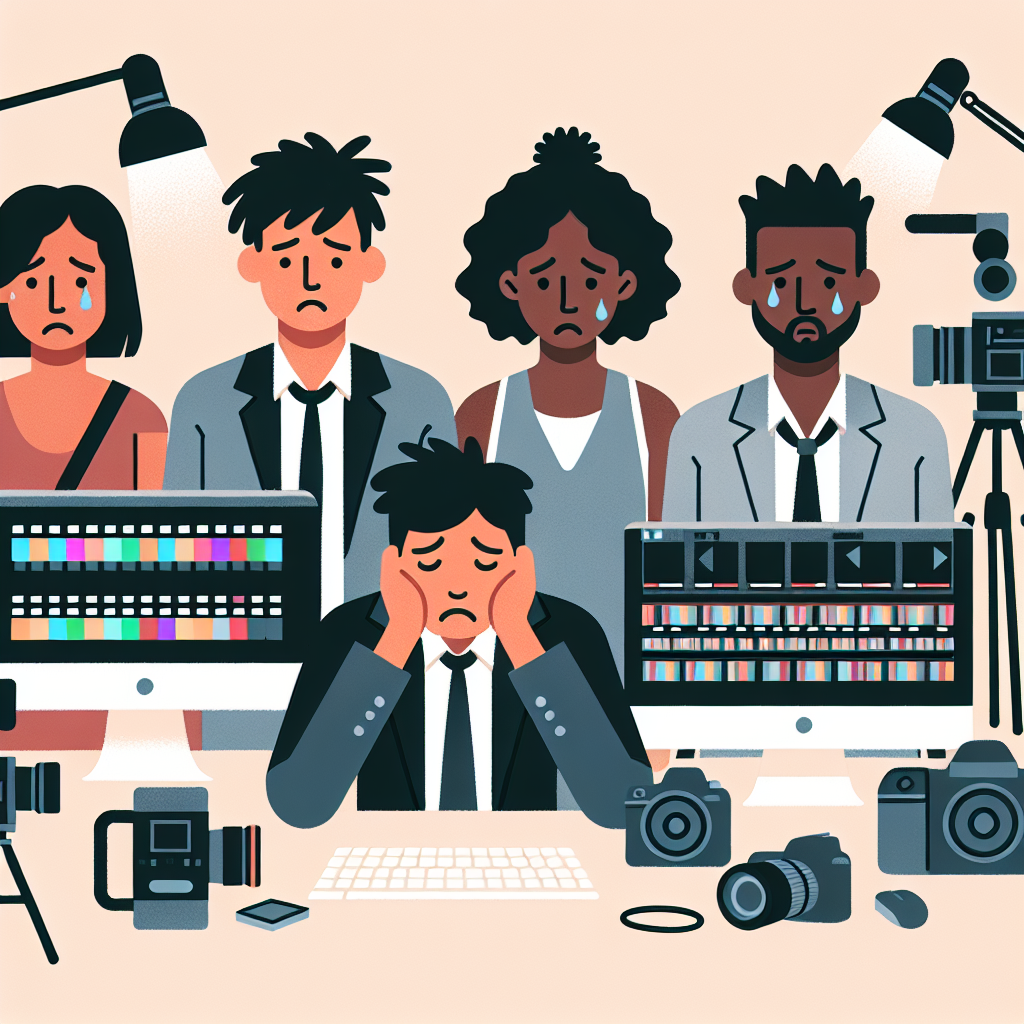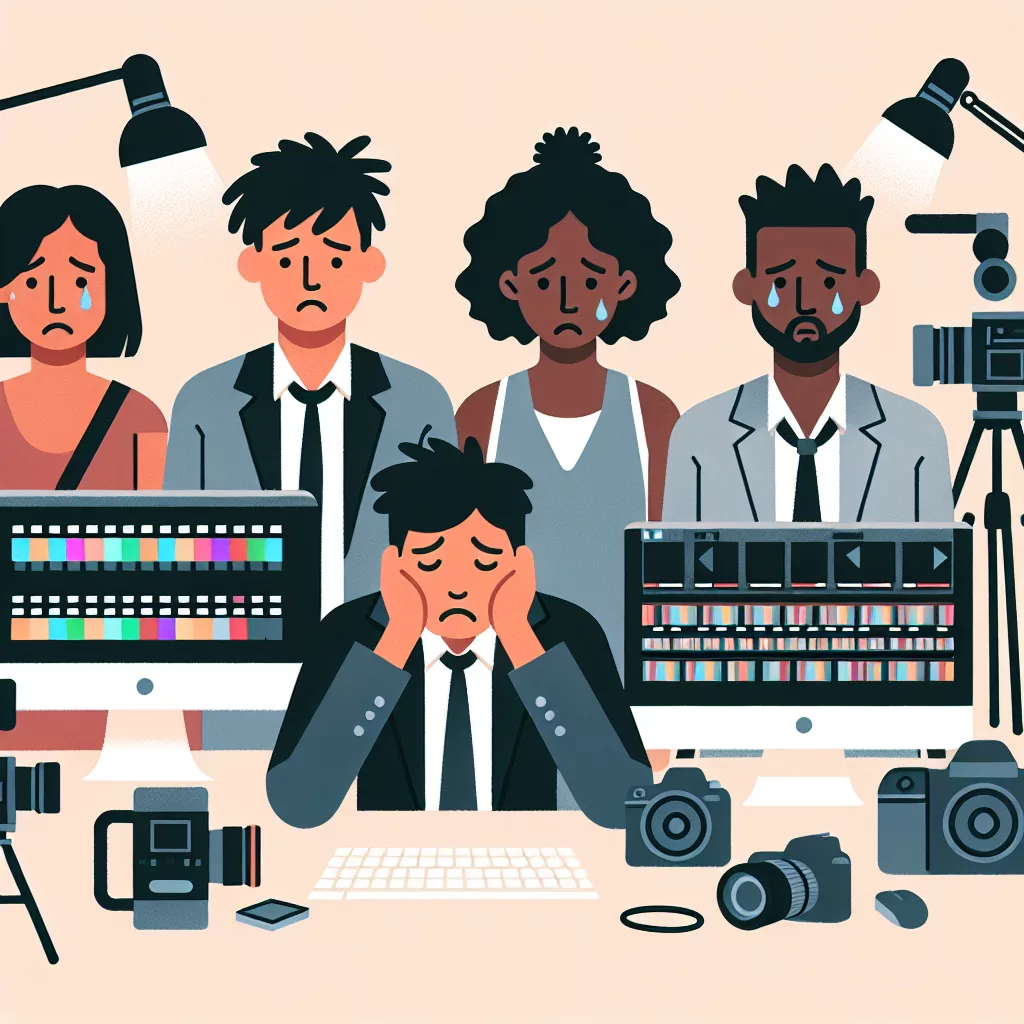Videographers face a whirlwind of creative demands and tight deadlines, risking burnout from constant capture, edit, and deliver cycles in an ever-pixelated world.

- Irregular work hours disrupt personal and social life.
- High-pressure deadlines can increase stress levels.
- Creative demands often lead to mental exhaustion.
- Monotonous editing tasks may cause job dissatisfaction.
- Inconsistent income leads to financial instability.
- Frequent travel impacts work-life balance.
- Lack of recognition affects motivation and morale.
The data on career burnout statistics for videographers indicate a Moderate level of severity.
Reasons Videographers burnout
According to the science to date there are key reasons people burnout at work. Here’s our top reasons why Videographer in the Technology category has a burnout risk of Moderate:
One significant factor contributing to burnout in the videography career is the intense workload. Videographers often face tight schedules and long hours to meet client deadlines. This constant pressure can lead to stress and exhaustion.
Creative fatigue can also play a crucial role. As a videographer, being consistently creative and innovative is necessary, but this can be mentally taxing over time, leading to a depletion of creative resources.
Furthermore, inconsistent income is a common challenge in this field. Many videographers work as freelancers or on a project basis, leading to financial uncertainty, which can heighten stress and contribute to burnout.
The lack of recognition is another issue. Despite putting in considerable effort to create high-quality content, videographers may not always receive the appreciation or acknowledgment they deserve, which can decrease job satisfaction.
Technology overload is also noteworthy. Videographers are constantly learning new software and adapting to rapid technological changes, which can be overwhelming and lead to fatigue.
Yet another reason is the physical demands of the job. Many hours spent standing, carrying heavy equipment, and traveling can take a toll on the body, contributing to burnout.
Finally, work-life imbalance is a prevalent issue. The need to work irregular hours, including nights and weekends, can impinge on personal time, disrupting the balance and contributing to burnout.
Burnout rate data for Videographer/Technology
There’s limited specific data on burnout among videographers or within the broader technology industry. However, burnout is notably prevalent in creative roles and fast-paced technological environments due to the pressure to continuously innovate and meet tight deadlines. This makes it a concern in these sectors. Research generally links high workloads, lack of control, and insufficient reward as key drivers of burnout.
For the tech industry, a study by Blind, an anonymous professional network, found significant burnout rates, indicating job pressure and work-life balance issues as critical factors. More details can be found directly from their survey report (https://www.teamblind.com/blog/index.php/2019/01/02/burnout-in-americas-workforce/).
You may also consider reviewing articles from sources like the World Health Organization, which discusses occupational burnout as a global phenomenon. Their outline on occupational burnout is insightful (https://www.who.int/news-room/q-a-detail/mental-health-mental-health-conditions).
Do you have experience of Burnout as a Videographer or in Technology?
Share your story about Videographer burnout on our share your story page.
Burnout in Technology
Career Burnout Rates > Burnout in Technology > Videographer Burnout


